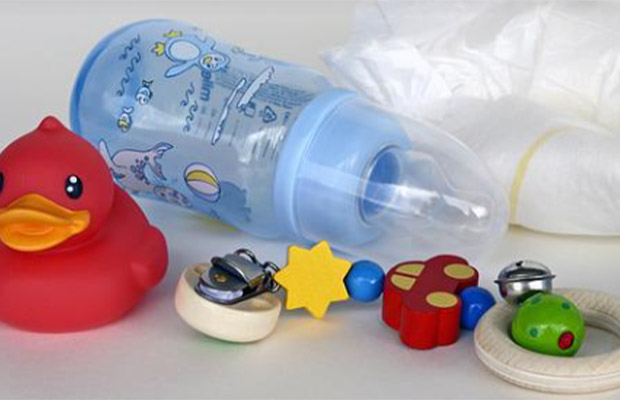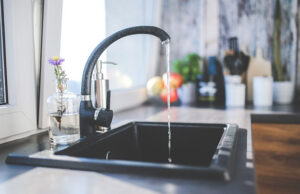Washing baby bottles by hand can be a bother, especially if you are exclusively feeding your baby formula because there is so much to clean. Can baby bottles go in the dishwasher?
Yes, you can definitely wash baby bottles in the dishwasher, including those made of plastic and silicone. In actuality, the dishwasher is actually the greatest method for cleaning infant bottles if used properly. More bacteria that may be hiding in the baby bottles will be killed by the dishwasher’s high temperatures and steam. You’re good to go as long as your baby bottles are dishwasher safe.
Table of Contents
Steps of Washing Baby Bottles in The Dishwasher
It’s crucial to clean your baby bottles after each use to stop bacteria from growing and jeopardizing the safety of the milk you give your child. Baby bottles can be cleaned in a variety of ways, but one of the best and most practical ways is to put them in the dishwasher. Here are detailed instructions with helpful advice on how to wash baby bottles in the dishwasher:
- First, take apart the baby bottles.
Separating all bottle components is the first step in washing your baby bottles in the dishwasher. Nipples, rings, caps, and any accompanying valves or membranes are among these components. If you occasionally hand wash your baby’s bottles, don’t forget your bottle cleaning brushes either.
- Rinse or soak the bottles.
After all the components have been separated, it is time to quickly rinse them under running water. Before placing them in the dishwasher, do this to get rid of any obvious dirt or milk stains.
If you have the time, you may also give the bottles a brief soak in warm water with some light soap to help remove any lingering dirt. To get rid of any milk buildup or residue, you can also soak your bottles in a solution of equal parts water and vinegar.
- Third Step: Fill the Dishwasher
The bottles should be rinsed or soaked before going into the dishwasher. Manufacturers of infant bottles generally advise staying on the upper rack, which is farther away from the hot elements. Place your bottles on the bottle wash jets in your dishwasher, facing down, and fasten them with the included clips. The bottles should be placed on the upper rack with the bottoms facing down if your dishwasher lacks bottle wash jets. Your glass baby bottles can go on the bottom rack, where they will get better cleaning. The third rack of your dishwasher is the perfect spot to store all of those little components, such as valves, nipples, and lids. If not, you can use a basket made specifically for baby bottles or a mesh bag.
- Choose the appropriate cycle and detergent.
Selecting the appropriate dishwashing cycle is the next step. If your dishwasher has one, it is advised to use the sanitize cycle for baby bottles. The hot water cycle will work in that case.
It’s preferable to use a detergent that is free and clear because it will be less likely to leave a residue on your baby’s bottles. Once I switched from using my standard dishwasher tablets to Seventh Generation detergent, I discovered that my baby bottles were considerably cleaner after being washed.
- Dry the baby bottles.
Use the hot dry setting on your dishwasher to ensure that the bottles are properly dried and free of watermarks. Bottles can still come out moist even with the heated dry option, thus you still need to counter-dry all the bottle parts. The best way to accomplish this is to spread them out on a drying rack and allow them to totally dry in the air. I adore using a bottle drying rack for the bottles and my Boon drying grass to dry all nipples, rings, and pacifiers.
Your baby bottles can also be set down on a fresh, unused dish towel or paper towel. The most crucial step is allowing your thoroughly cleaned baby bottles to air dry before storing them. To avoid transferring any bacteria or lint to the baby bottles, just be careful not to pat dry them.
When Can You Start Cleaning Baby Bottles in The Dishwasher?
Before starting to wash their infant bottles in the dishwasher, some parents wait a few weeks. However, you can start washing baby bottles in the dishwasher right now!
Using the dishwasher will become your greatest friend for cleaning baby bottles once you choose a bottle that your child accepts and stock up on enough bottles to last you for a few days’ worths of feedings, or at the very least, a full 24-hour period.
However, you can also come up with a strategy that works best for you and your family. Ideally, you will need two sets of bottles so that you can use one set while the other is being washed and dried. It was emptying the dishwasher before breakfast and running it before we went to bed for us. We could always have clean bottles on hand in this manner.
How Frequently Should You Wash Your Baby Bottle?
How frequently do you wash the dishes? Daily, huh? You should run infant bottles through the dishwasher at that frequency.
When it gets too difficult, it’s completely acceptable to soak the disassembled pieces in a washbasin with hot water and baby bottle-safe detergent before scrubbing with a clean brush reserved just for that task.
Which Detergents Work Best for Washing Baby Bottles in The Dishwasher?
The detergent you use while washing baby bottles in dishwashers matters just as much as the caliber of the bottles themselves.
Detergents are known to occasionally include specific compounds that can be harsh, despite the fact that they are generally beneficial and essential in all aspects of cleaning.
You should carefully examine and analyze the detergents you are using in light of how delicately baby bottles need to be cleaned.
Baby bottles shouldn’t be cleaned with detergents that include any of the following items:
Perfumes, Sulfates, Chlorine Bleach, Paraben, Caustics, Dyes, Phosphates, Triclosan
These are a few of the ingredients found in typical detergents. Despite their ability to clean surfaces effectively in general, they are simply too abrasive to use to wash infant bottles.
Alternative detergents free of the aforementioned ingredients and made naturally can be used for baby bottles in dishwashers.
These detergents are typically created using enzymes derived from plants, so they don’t leave any odor from milk, food, or the detergent itself behind.
These detergents are often created from hypoallergenic, safe, and non-toxic components and are specially intended for infant feeding utensils.
Any detergent that lacks these characteristics—being non-toxic and residue-free—can leave traces that could be too dangerous for a baby. Therefore, it’s crucial to read labels and conduct additional research before buying these products.
Important Things When Using A Dishwasher
- Stain
You shouldn’t wash your baby’s bottles with anything that can cause stains, including pasta sauce. Your baby bottles are likely to get splattered with it during the high-temperature washing process, staining the bottles and nipples.
- Bottle positioning
Your baby bottles must be carefully inserted into the dishwasher. To ensure thorough cleaning, it is recommended to position them so that the opening is facing down. The bottles must be held securely during the procedure to prevent spillage. You will then need to disinfect it if it falls.
- Harmed and stained
You should be aware that if you frequently clean your baby bottles in the dishwasher, they will deteriorate more quickly than if you wash them by hand. Baby bottle discoloration is a sign of baked milk lipids from inadequate cleaning and watering. Your baby bottles may potentially be harmed by the excessive temperature.
Conclusion: Can Baby Bottles Go in The Dishwasher?
Your baby bottles can definitely be cleaned in the dishwasher! You’ll have sparkling clean bottles that are safe to use for your baby if you just make sure to follow the instructions we detailed above.
The only drawback I can see to cleaning baby bottles in the dishwasher is that over time, they won’t hold up as well as if you hand wash them. However, it holds true for anything you clean in the dishwasher. And to be completely honest, even if it means changing baby bottles every few years, anything to simplify the chaotic baby phase is welcome for me.
Do you have any advice on cleaning baby bottles and other feeding supplies? Please do so in the remarks section below!
Read More: Dishwasher Not Spraying Water


